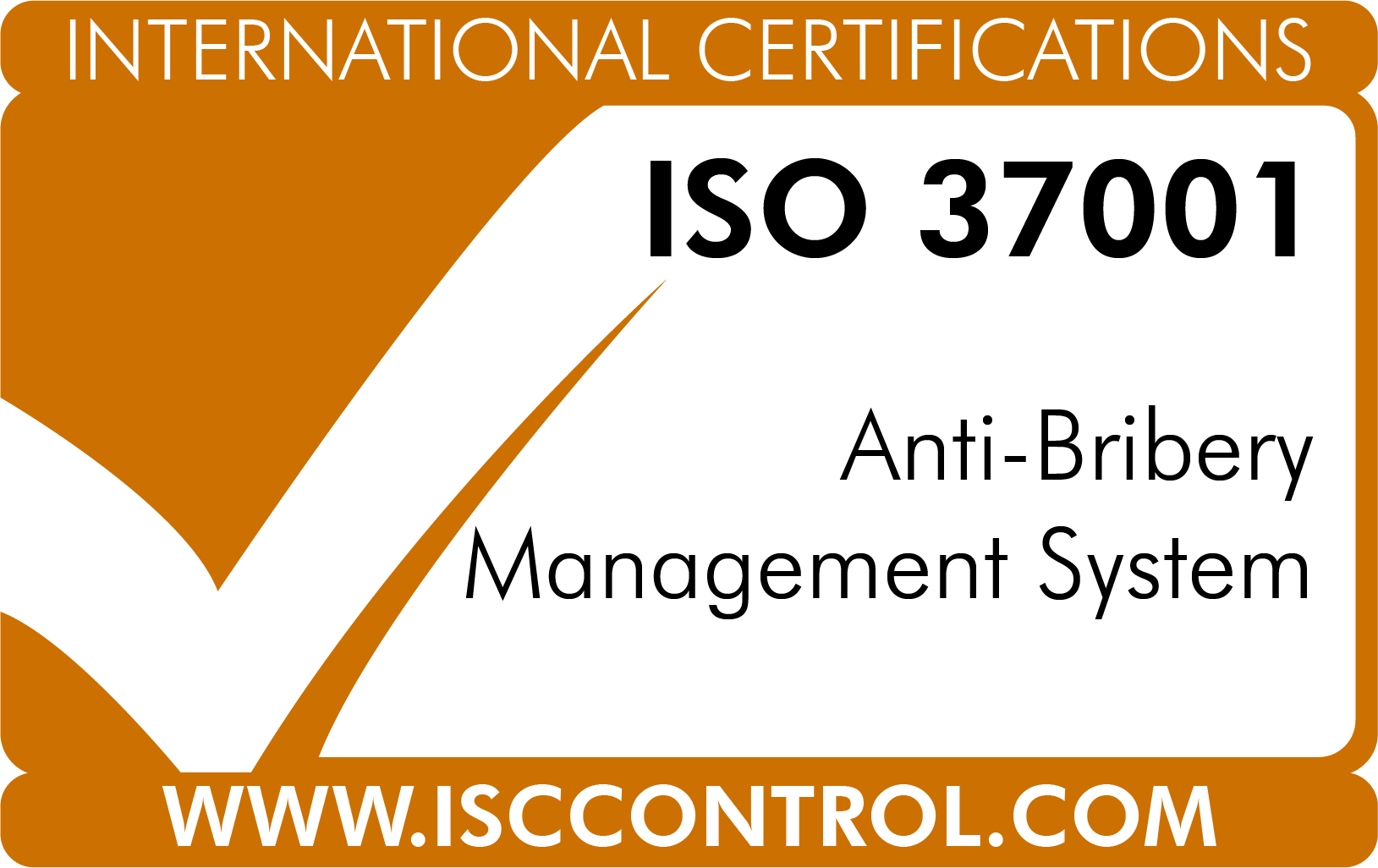ISO 37001 Anti-Bribery Management System
What is ISO 37001
Bribery is one of the most common forms of corruption in the corporate world; Therefore, the ISO 37001 certification evidence compliance with all the legal requirements regarding bribery, which applies to organizations, in addition to other specific requirements of the ISO 37001: 2018 standard.
Bribery is an act of offering, giving, receiving and soliciting any value or bribe to influence actions and decisions of an official or other person in charge of a public or legal duty. Bribery is leading to lack of trust and confidence in negotiations and transactions between the business world and public institutions and has a great impact on international trade. Although until now many acts, legislations and laws have been implemented to prevent corruption and bribery, not all of them have succeeded.
ISO 37001 Anti-Bribery Management System
ISO 37001 – Anti-bribery Management Systems is an international Standard applicable to bribery that sets the requirements for the establishment of an Anti-bribery Management System in compliance with anti-bribery laws for an organization. It covers bribery in the public, private and not-for-profit sectors. The purpose of developing an Anti-bribery Management System is to cultivate an anti-bribery culture within the organization that will enhance trust and transparency and will result in the general improvement on the workflow of an organization. Specifically, the Anti-bribery Management System can help an organization establish, implement and maintain an anti-bribery program that prevents and detects bribery risks within the organization or enhance existing anti-bribery controls within the organization.
Furthermore, an Anti-bribery Management System can stand alone or can be integrated with other management systems that are already implemented by the organization.
Target Audience
The requirements of ISO 37001 are generic and are applicable to organizations of all types, regardless of their size, activity and sector. This includes state-owned enterprises, large organizations, Small – Medium enterprises, non-governmental and non-for-profit organizations.
ISO 37001
Anti-Bribery Management System
The benefits
An Anti-bribery Management System supports an Organization to:
- prevent, detect and address bribery risks and improve risk assessment.
- be more reliable and thus more likely to sign agreements with other organizations.
- increase awareness of consequences if involved in bribery and increase its ability to detect fraud.
- improve its financial performance by refusing to pay bribes, by not having to implement costly procedures and by implementing efficient mechanisms to track transactions.
- improve its effectiveness.
- improve employee performance by promoting an Anti-bribery culture.
- avoid reputational damage caused from involvement in anti-bribery and thus add to its longevity.
- increase international recognition by demonstrating the conformity to international standards, national and international laws.
Certification Process / Required Documents
The Organization interested to achieve certification against ISO 37001 Standard requirements contacts ISC Control and fills in the certification application Annex ISO 37001.
An initial audit is conducted and, if successful, a certificate of compliance is issued that is valid for 3 years, provided that the organization undergoes an annual audit.
Why Choose ISC Control as Your Certification Body?
Global Recognition
Selecting the right organization or certification body that offers qualitative and credible training and certification services can be a challenge. However, by choosing an accredited certification body, such as ISC Control, proves that you follow best practices, up to speed, and trustworthy.
Professionals who pursue a ISC Control con certification credential will benefit from the recognition in domestic and overseas markets. Being accredited by some of the strictest and most reputable accreditation bodies in the world gives us global recognition.

